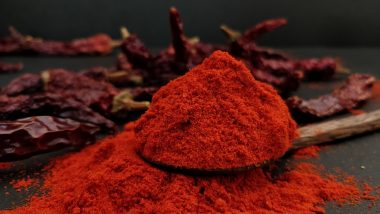Indians have a tendency to gorge on everything teekha with generous amounts of spices and lots of chilli powder. We just love turning up the heat but did you know that pepper can do more than just enhancing the taste of your dish? So if you have been overindulging in hot spices, you must know that apart from filling you with vitamins such as A, C, and B-6, hot peppers also have many reported side effects.
How Does Your Body React When You Consume Hot Pepper?
For people with a low tolerance for spice, eating these foods can be pretty painful. Hot peppers trick your brain into thinking that your mouth is on fire. But the fact is that there is no real heat in a pepper. So what is exactly going on? The capsaicin in pepper binds to pain receptors on your tongue called TRPVI. Normally these nerves react to heat by sending warning signals to the brain. Capsaicin causes TRPV1 to send those same signals so you react as if there is something hot in your mouth.
The brain then initiates a "cooling off" period to clear out the threat of the spiciness. So you start to sweat and your face turns red. Your eyes tear up and your nose runs at the same time. After swallowing, the capsaicin binds to more receptors on its way down. In severe cases, you develop blisters in the throat, vomit and go to anaphylactic shock. Eating Out On a Weight Loss Diet: Healthiest Foods to Order At a Thai Restaurant.
Why Do Some People Love Hot and Spicy Food?
The pain response triggers the release of endorphins and dopamine which creates a feeling of euphoria similar to "runner's high". But ultimately, the response to spicy food depends on your tolerance. So if you are the type who cries after a jalapeno, don't sweat too much. You can build up a tolerance over time with practice. Momos to Legumes, Surprising but Healthy Mood-Boosting Food Options for Workaholics!
Is Spicy Food Bad For Your Body?
Hot pepper in moderation can actually benefit your body. A study published in the journal PLOS One concluded that those who ate hot peppers had a 13 percent reduced risk of dying from heart disease or stroke.
Heartburn and Acid Reflux: However, overindulging in peppers can lead to everything from heartburn and acid reflux. The burning sensation that you experience in your mouth from eating hot peppers can also occur in your stomach during digestion. This can send the hot sensation back into your esophagus as gastric reflux. Home Remedies For Acidity and Gas: Symptoms and Causes + Tips To Cure Acid Reflux Naturally.
Rectal Burning: As the hot peppers progress through your digestive tract, they can continue to retain some of the burning ingredients that makes them hot in the first place. This can cause a painful, burning sensation in your rectum as you pass stools containing any type of hot pepper waste.
Skin Rash: Even if you do not eat hot peppers, you can experience a side effect from handling them. Capsaicin works its fiery sensation even on your skin, making your skin burn, turn red and itch.
So, you’ve just eaten a mouthful of food that’s way too spicy for your taste buds to deal with. What do you do? Try a milky drink that contains the fat needed to take the edge off. Some tasty mango lassi at your local curry house will do just the job.
(The above story first appeared on LatestLY on Oct 24, 2019 12:02 PM IST. For more news and updates on politics, world, sports, entertainment and lifestyle, log on to our website latestly.com).













 Quickly
Quickly





















